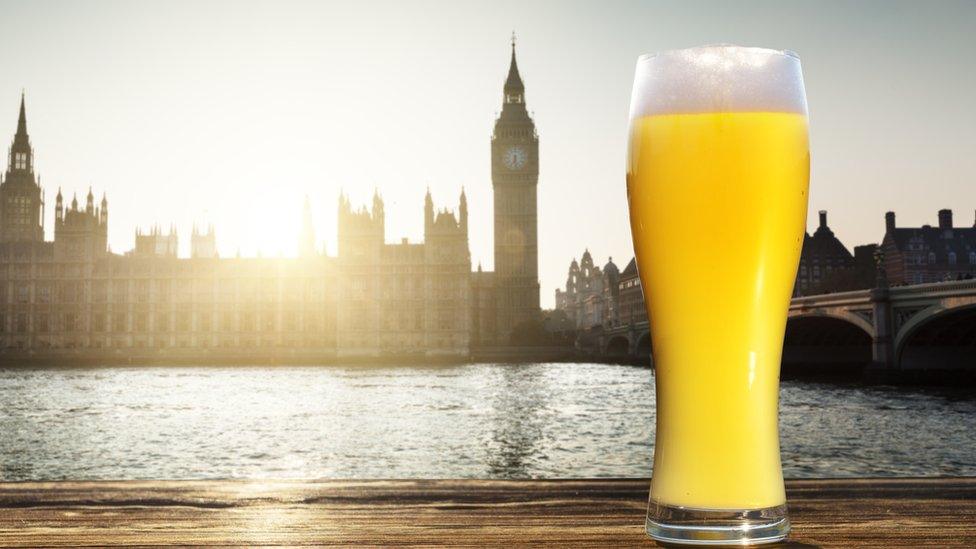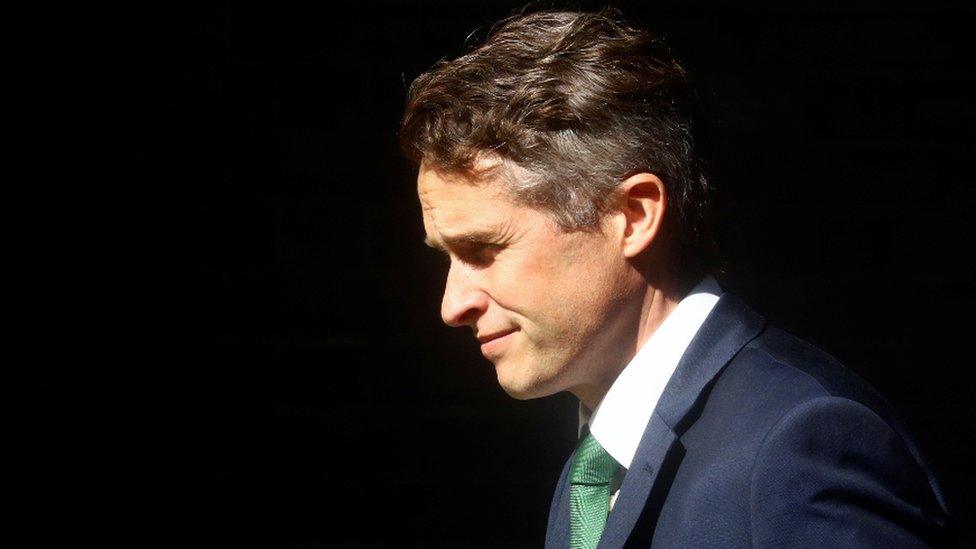Gavin Williamson allegations: How leaks and sources are used in politics
- Published

How many times have you read or heard a news story with a quote or some information attributed to "a source"?
Or seen that the reporter "understands" that someone holds a certain point of view?
That's probably a sign that they've been briefed or sent documents by the person in question (or someone who works for them).
But it's all been done in a deniable, "you-didn't-hear-this-from-me" kind of way.
Or, to put it more bluntly, it's been leaked.
Leaks are in the headlines because of the sacking of Gavin Williamson as defence secretary after confidential plans about telecoms giant Huawei were given to a journalist.
Mr Williamson has strongly denied being behind any leak and Theresa May's team says the matter is closed.
This alleged leak is an extreme example, but on a smaller scale - information, rumours and gossip are leaked on pretty much a daily basis. It's part of the fabric of Westminster politics.
How do leaks happen?
They could take place in a bar or with a rushed conversation in the hallways of Westminster - and that's the image many of us probably have in mind.
Remember, Westminster is a physical place. Think of yourself swapping gossip with colleagues at your workplace - it's no different.
But these days it's just as likely to be on WhatsApp as over a drink.

A chat over a pint, or a cheeky WhatsApp?
So what's in it for the journalist? Fairly obvious really - they get to be first with the story, the person with a glimpse behind the curtain.
And consider this: without leaks, what kind of political news would we have? Only what the people in charge of the parties want us to hear.
Allow X content?
This article contains content provided by X. We ask for your permission before anything is loaded, as they may be using cookies and other technologies. You may want to read X’s cookie policy, external and privacy policy, external before accepting. To view this content choose ‘accept and continue’.
And what are the benefits of leaking for the politician or staff member? Well, that's a bit more nuanced.
They might want to build a relationship with a journalist who may be useful in the future - and a little "you scratch my back..." seldom goes amiss.
They might disagree with a planned policy and feel that bringing it out into the light could change public opinion or at least spark a debate.
It could be pure politics - an attempt to make yourself look great or undermine one of your rivals.
Or of course it may be genuine concern that an injustice was being done and a desire to blow the whistle.
And why leak privately rather than issue a press release (or more likely, a tweet) with your name on it?
Quite simply, deniability. No names, no comeback. Though there are always exceptions.
A brief history of leaks
Labour politician Jimmy Thomas was forced to stand down in 1936 after leaking details of the Budget.
Legend has it that he would drop hints to his golfing buddies like shouting, "Tee up!" to indicate that the tax on tea was about to rise.

Artist's reconstruction of the 1936 budget leak
In 1947 Chancellor Hugh Dalton had to stand down. He had chatted about his Budget plans to a newspaper reporter and they appeared in the paper before he gave his speech.
That was by no means the last Budget leak. In fact newspaper headlines with eerily accurate predictions have become the norm.
And it's not just financial information of course. All kinds of juicy things have ended up in the ears of journalists over the years, as what are sometimes called the "dark arts" became more and more commonplace at Westminster.
Currently, we live in unusually leaky political times. Politicians are jockeying for position behind an outgoing prime minister. Discipline in Cabinet is seen as relatively lax. It was, until the Williamson allegations broke, something of a leaker's paradise.

Amusing stock photo entitled "leak" to break up long article about politics
Is leaking against the rules? Or even against the law?
There's an important distinction between the law, and the unwritten code that governs the way politicians work together.
If classified or sensitive information has been disclosed, that's one thing.
But if we're talking about Westminster rumours and gossip, things are not clear-cut.
More than anything else, leaking can be a sign of a breakdown in party discipline. A sign that politicians are acting for their own ends rather than sticking to the script.
But it's part of the UK political landscape. A cog in a great machine. And it seems unlikely to go anywhere.
"If everyone ratted each other out for leaking," one well-placed source at Westminster tells Newsbeat, "it'd be a bloodbath."


Follow Newsbeat on Instagram, external, Facebook, external, Twitter, external and YouTube, external.
Listen to Newsbeat live at 12:45 and 17:45 weekdays - or listen back here.
- Published8 November 2022

- Published2 May 2019

- Published1 May 2019